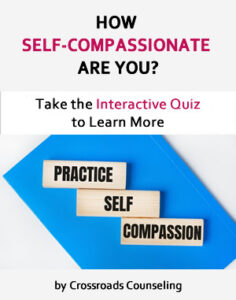Determining the cause of emotional distress is your first step in managing these unwanted feelings. The short answer is yes: it does matter whether you’re grappling with loneliness or depression. These two can share similar emotions, making it tough to recognize where one ends and the other begins. You might notice restlessness and irritability creeping in, or even find yourself enveloped in a mental fog. By distinguishing between these feelings, you open the door to addressing them effectively.
How Loneliness Differes from Depression
Loneliness is like a lingering cloud, often temporary, affecting your sense of belonging. When you seek genuine connection, this feeling tends to dissipate. It’s important to recognize that loneliness is a feeling and not a mental health condition.
The Complexity of Depression
Depression, however, is a deeper, persistent state that requires professional intervention. Unlike loneliness, it can dull your desire for social interaction, leaving you feeling empty even in a crowd. It doesn’t just fade away; without help, it can seriously impact your life.
The Progression of Loneliness into Depression
Depression is a multifaceted mental health condition, and loneliness is just one piece of the puzzle. While living alone doesn’t always equate to feeling lonely, that nagging sense of isolation can indeed snowball into something more serious. Imagine being surrounded by friends yet feeling utterly alone. It’s a paradox that many experience.
The Role of Self-Disgust
When relationships falter or feel unsatisfactory, loneliness might morph into depression, fueled by self-disgust. This often involves harsh self-judgment or feelings of low self-worth that magnify isolation, potentially leading to depressive symptoms.
Ever caught yourself thinking, “Why would anyone want to date me? I’m so ugly,” or “I haven’t changed my clothes in three days… that’s disgusting”? These thoughts can feel consuming. If you dwell on them, believing you’re undeserving of love or friendship, your actions might inadvertently affirm this belief. Skipping invitations, thinking, “They don’t really want to see me,” or constantly worrying about others’ perceptions when socializing can create a self-fulfilling prophecy.
Tips on how to Cope with Loneliness
Here are some helpful tips to help you cope with loneliness.
Redefine Alone Time
You might think the solution is simply to get out more and make new friends. While socializing can help, it’s crucial to realize that being alone doesn’t always equate to loneliness. Delve deeper to understand what’s truly missing in your relationships and explore activities that bring you joy. This introspection can guide you toward more fulfilling connections.
Assess Relationship Quality
Even among friends, loneliness can linger if interactions lack depth. Strive for meaningful engagements by discussing topics that matter to you, rather than passively sharing space.
Prioritize Personal Interests
Engaging in activities you love can boost your mood and satisfaction with life, reducing feelings of loneliness. Remember, happiness often attracts company and strengthens existing bonds.
Acknowledge Your Humanity
Feeling lonely and down is a universal experience. Yes, even that one person who always seems to have it together grapples with these emotions. Embrace this commonality. By recognizing this, you can start to treat yourself with kindness rather than self-disgust.
Emotional Regulation
Handling feelings of self-disgust and hopelessness effectively makes a significant difference. Rather than dwelling on negativity, focus on emotional regulation. This involves acknowledging your emotions and employing positive coping strategies. Remember, it’s okay to seek help; you’re not alone on this journey.
How Therapy Can Help
Therapy can be a powerful ally when you’re struggling with loneliness and depression. One of the key techniques therapists often employ is mindful acceptance. This involves learning to become comfortable with distressing thoughts and emotions rather than fighting them. By embracing these thoughts, you can reduce their power over you. Imagine sifting through your thoughts with a gentle curiosity, instead of fear. Over time, this approach can foster a sense of peace and resilience, helping you navigate the complexities of your emotions more effectively.
Our team of caring therapists would be honored to support you in taking the next step to address your depression symptoms. We have offices throughout the Valley of the Sun including Phoenix, Anthem, Scottsdale and online. Start your therapy journey with Crossroads Counseling, please follow these simple steps:
- Contact Crossroads Counseling for a complimentary 20-minute phone consult
- Meet with a depression therapist
- Undo aloneness
Our offices are located throughout the valley with counseling centers located in Phoenix, Anthem, and Scottsdale. Call us at 623-680-3486,text 623-688-5115, or email info@crossroadsfcc.com. We offer a complimentary 20-minute phone consultation to answer your questions and better understand how we can help you.










